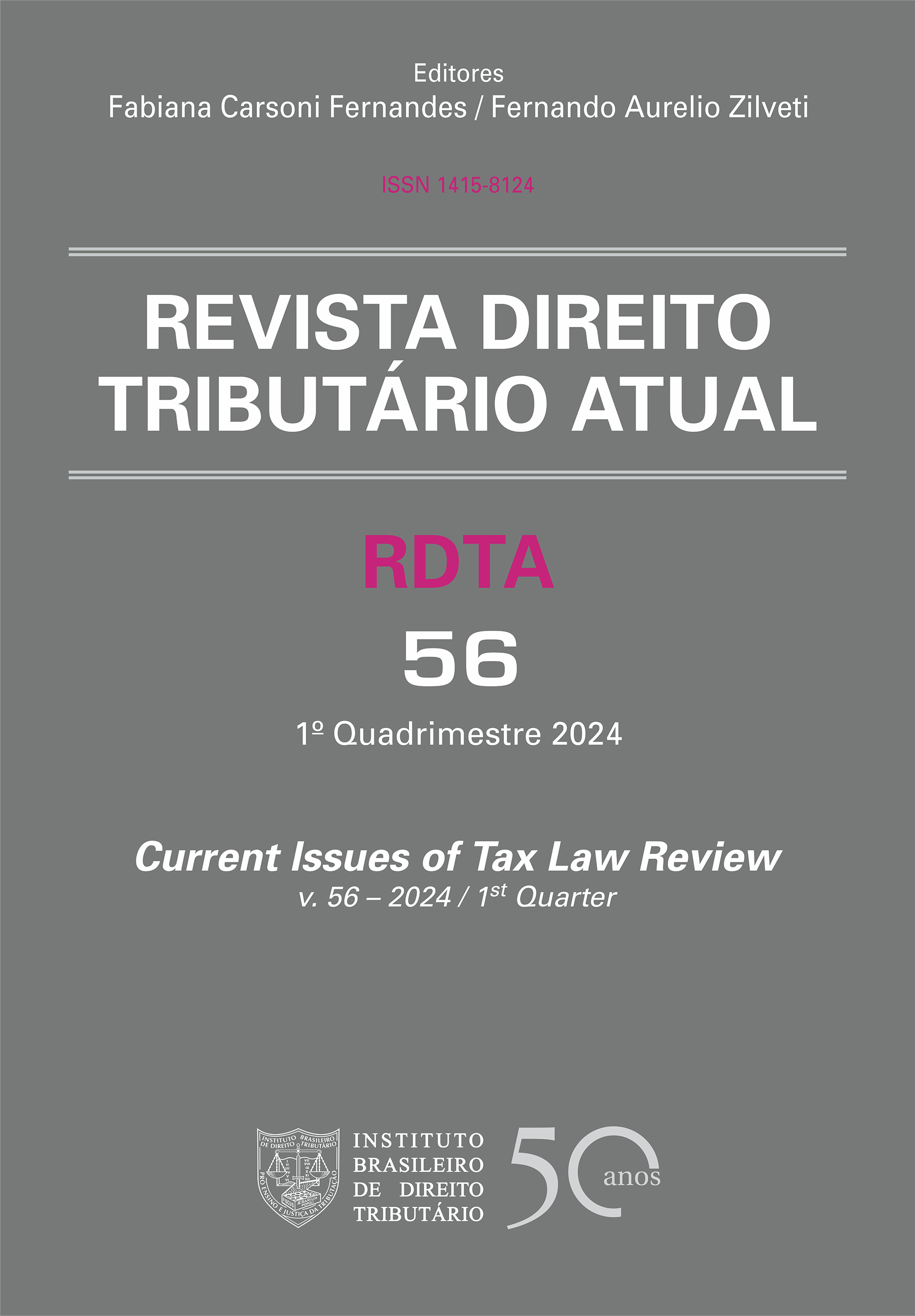Taxation on the Distribution of Profits and Dividends
Study on Applicable Models and Analysis of the Brazilian Case
DOI:
https://doi.org/10.46801/2595-6280.56.26.2024.2528Keywords:
distributed profits and dividends, Individual Income Tax, exemption, taxation models, double non-taxationAbstract
This article provides an analysis of the tax treatment in Brazil regarding the distribution of profits and dividends, rooted in the legal foundations based on the constitutional principles of equality, generality, universality and progressiveness applied to the Individual Income Tax and the phenomenon of double non-taxation. Subsequently, the paper describes the taxation systems of profits and dividends, presenting the systems applied in the United States, China, Germany, the United Kingdom and France. The results obtained are examined based on the simulation of the taxation of the distribution of profits and dividends using the classical system, partial inclusion system and presumed total imputation system. Finally, is presented the proposal for the adoption of the partial inclusion system of 75% of received profits and dividends incorporated into taxable income to be submitted to the Individual Income Tax (IRPF) table. With this reform, R$160 billion would be raised. We conclude with the proposal that the redistribution of this taxation be aimed at correcting the IRPF table, reducing the Corporate Income Tax (IRPJ) rate, and the Contribution on Goods and Services (CBS).
Published
How to Cite
Issue
Section
License
Copyright (c) 2024 Mauro José Silva, Larissa Yuki I. G. Barbosa

This work is licensed under a Creative Commons Attribution-NonCommercial-ShareAlike 4.0 International License.
O autor (ou coautor) declara que o artigo submetido à avaliação, que segue em anexo, é de sua autoria, e inédito, comprometendo-se a não publicar este artigo em qualquer outro meio, impresso ou digital, mantendo a exclusividade para a Revista Direito Tributário Internacional Atual, cedendo, em caso de aprovação do trabalho, os direitos autorais à Revista para fins de publicação do trabalho nesta edição.





